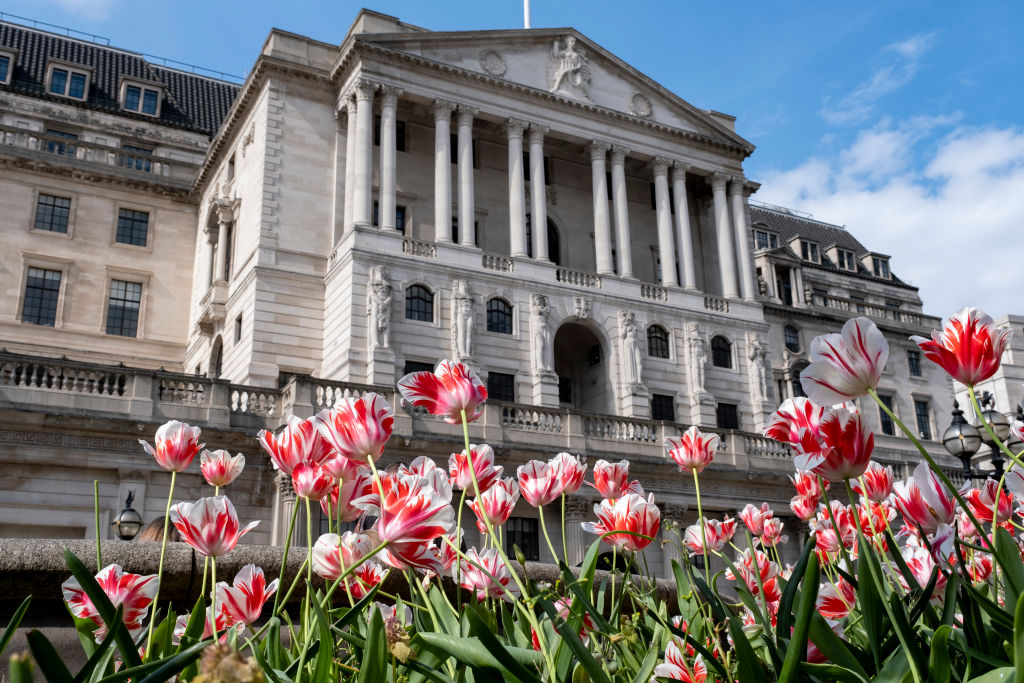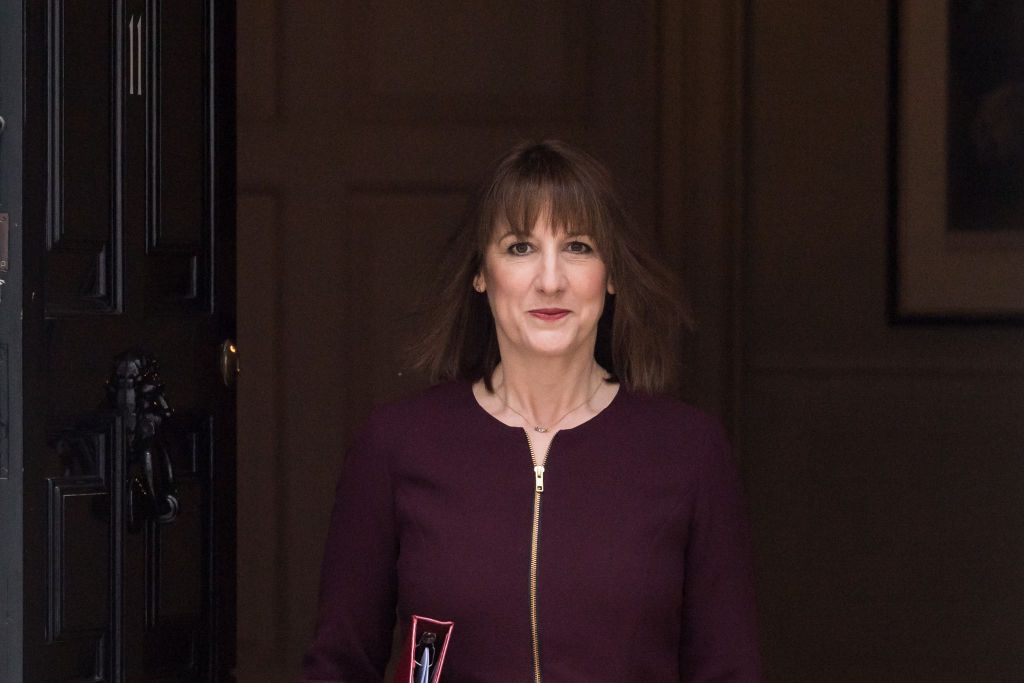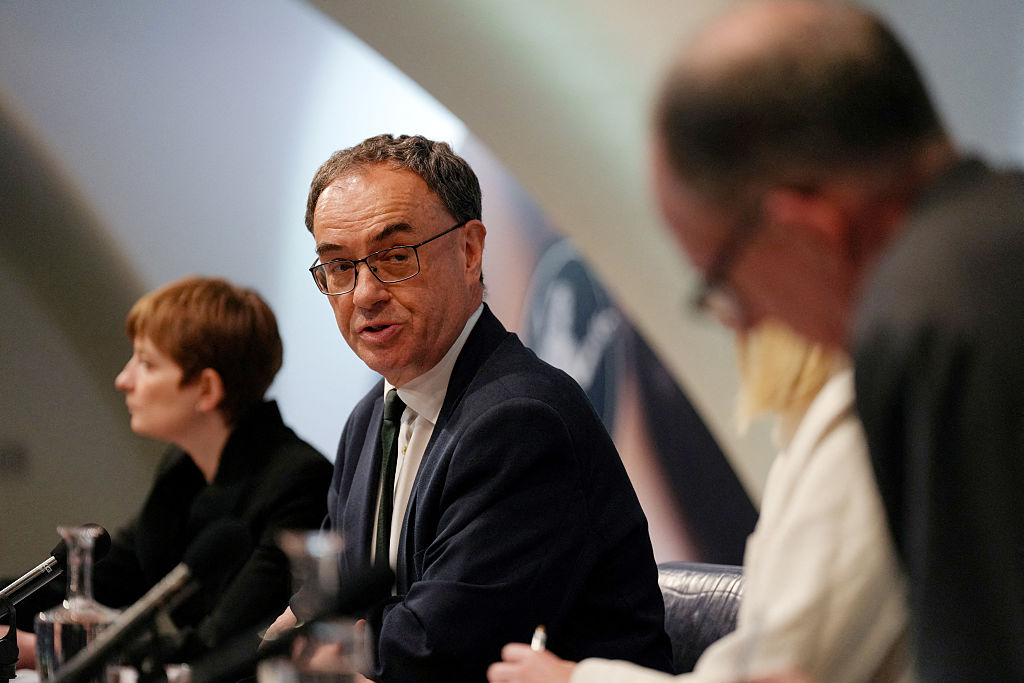Summary
- The Bank of England has cut interest rates by 25 basis points, bringing the base rate to 4.25%.
- The cut was widely anticipated, with growth fears having escalated in response to Donald Trump’s tariffs.
- Inflation was also lower than expected in March at 2.6%, down from 2.8% the previous month, creating a window of opportunity for the UK central bank to lower borrowing costs.
- Economists at Pantheon Macroeconomics had called the rate cut a “shoo-in”.
- Deutsche Bank had said a quarter-point rate cut seemed "like a certainty".
- Despite this, the Monetary Policy Committee (MPC) was more divided than expected, with a 5:4 voting split. Two committee members voted for a 50 basis-point cut, but two also voted to hold rates where they were.
- Most economists expect one or two more rate cuts from the Bank of England by the end of the year.
| 2025 interest rate forecast | MPC meeting dates | How does inflation affect you? |
Rate cut widely expected tomorrow
Good morning and welcome to our live blog. The Bank of England will announce its next interest rate decision at 12.02pm tomorrow. The decision will come two minutes later than usual to respect the two-minute silence being held in commemoration of VE Day.
Just as the weather has been warming up, interest rates are expected to thaw in what could be the first cut this spring. We haven’t had an interest rate cut since February. The Monetary Policy Committee (MPC) held rates steady at 4.5% when it last met in March.
A 25 basis-point cut would take the base rate to 4.25%, a whole percentage point lower than its recent high of 5.25%. The Bank of England began its rate-cutting cycle last August. It has cut rates three times since then – first in August, then in November, and most recently in February.
Odds of a 50 basis-point cut
While most economists are forecasting a 25 basis-point cut, several are expecting some MPC members to vote for a more aggressive approach. Swati Dhingra and Catherine Mann have voted for 50 basis points in the past, and could take a similar stance this time around.
“A 50 basis-point rate cut will be firmly on the agenda at the Bank of England’s upcoming meeting, reflecting a shift in the economic backdrop since March’s pause,” said Steve Matthews, investment director at Canada Life Asset Management.
“Global trade disruption and signs of slowdown – highlighted by the recent quarterly fall in US GDP – have brought a larger drop into focus. With UK CPI inflation now broadly in line with target, we expect MPC members Dr Swati Dhingra and Dr Catherine Mann to back a 50 basis-point move, opening the door to a potential surprise cut.”
That said, Matthews expects this faction to be outvoted, with a “narrow vote” ultimately resulting in a 25 basis-point cut to 4.25%.
Impact of Trump’s tariffs
This is the first Bank of England decision since Donald Trump announced his “Liberation Day” tariffs, unleashing chaos in markets and increasing the chances of a global economic slowdown.
Trump has now paused the worst tariffs for a period of 90 days, but a “baseline” tariff of 10% has been applied to most countries. China has been slapped with an effective tariff rate of 145%.
Other more targeted measures (some of which were announced before “Liberation Day”) have also been directed at certain industries, including automobiles, steel and aluminium.
“Donald Trump’s tariffs have caused a massive reappraisal of the future path of UK interest rates,” said Laith Khalaf, head of investment analysis at AJ Bell.
“As things stand markets are focusing on the collateral damage to the UK economy rather than the potential for a trade war to ignite inflation once again. As a result, the market is now assigning a 50% chance to the base rate being 3.5% or lower by the end of this year.”
Khalaf’s advice is to avoid inking this into your calendar, though.
“Right now the ultimate shape of US trade policy, and its economic effects, are about as clear as a muddy puddle in the dead of night. Forecasts are by their nature vulnerable to correction by unfolding economic reality, and that applies in spades right now,” he said.
That said, Trump’s tariffs will almost certainly feed into the Bank of England’s decision-making tomorrow. Expect the meeting minutes to contain a detailed discussion on this point.

Since the end of the Second World War, we have lived through an era of free trade. Could Trump's tariffs turn this world order on its head?
What are tariffs – and will they prompt a recession?
Tariffs are import taxes that make it more expensive to buy foreign goods. They are often imposed as part of a protectionist policy to encourage consumers to buy goods that are manufactured on home soil.
These taxes are paid by the company that imports the goods, but importers typically pass the cost on to consumers by building it into their prices, making things more expensive. For this reason, tariffs can be inflationary.
Donald Trump claims tariffs will be good for the US economy. He has persistently criticised the trade deficits in place between the US and trading partners, and has suggested the additional customs duties could be used to pay down US debt and cut income tax. The reality is more complex.
When tariffs are imposed or increased, businesses import fewer foreign goods because it becomes more expensive. This means custom duties are unlikely to be as lucrative as Trump has suggested.

Tariffs are unlikely to be as lucrative as Donald Trump has suggested. Economists expect them to push US inflation higher and slow global economic growth.
Other countries generally retaliate with tariffs of their own, meaning the US could end up making less money from exports too. For this reason (and others), tariffs are also expected to have a damaging effect on economic growth. Let’s take a closer look at why.
Firstly, the global economy is highly interconnected. Take Apple as one example. Almost every iPhone sold in the US is manufactured in China. The company is planning to shift a large part of its production to India to mitigate the impact of tariffs. Projects like this are costly.
When business costs go up, companies often increase their prices to protect their bottom line. But when goods become more expensive, consumers can’t afford to buy as many things. This often translates into an economic slowdown.
The International Monetary Fund (IMF) recently downgraded its global growth forecast by 0.5 percentage points in 2025 in response to Trump’s tariffs. It downgraded its US growth forecast by 0.9 percentage points.
Both projections remain in positive territory – the IMF has forecast global growth of 2.8% this year and US growth of 1.8% – but recessionary risks have increased.
“While we are not projecting a global downturn, the risks it may happen this year have increased substantially, from 17 percent projected back in October to 30 percent now. An escalation of trade tensions would further depress growth,” said Pierre‑Olivier Gourinchas, research director at the IMF.
The latest data shows the US economy shrank by 0.3% on an annual basis in the first quarter, as imports surged as businesses tried to get ahead of incoming tariffs. Imports are subtracted when calculating GDP, as they reflect money spent on goods and services produced outside of the US.
How many more interest rate cuts in 2025?
Most economists expect at least two more rate cuts from the Bank of England before the end of 2025.
- Consultancy Capital Economics thinks rates will be trimmed by 25 basis points in May, followed by a further 25 basis-point cut in November. This would take the base rate to 4% by the end of the year.
- Financial institution ING is forecasting quarterly cuts. This would mean three more cuts in 2025 (we already had one in February), bringing the base rate to 3.75%. The International Monetary Fund has also predicted three more cuts, as have economists polled by Reuters.
- Deutsche Bank on the other hand is expecting four (May, August, November and December), taking the base rate to 3.5% by the end of the year.
Deutsche Bank’s forecast (four rate cuts) aligns with market predictions. Markets are currently pricing in a 50% chance that rates end the year at 3.5%.
Liberation Day tariffs could prove stagflationary
“We think President Trump’s ‘Liberation Day’ tariff salvo will prove stagflationary – damaging global growth and increasing prices for businesses and consumers,” said Robert Wood, chief UK economist at Pantheon Macroeconomics.
The research provider has cut its growth forecasts for 2025 and 2026 as a result. It now expects UK GDP to rise by 0.9% in 2025 and 1% in 2026, down from 1.1% and 1.5% previously.
Although inflation slowed to 2.6% in March, Pantheon expects it to pick up significantly over the coming months, potentially hitting 3.4% in the second quarter and only falling to 3.3% by the end of the year.
The researcher points out that a “barrage of price hikes” will appear when April’s data is released later this month, reflecting hikes to things like energy bills, water bills and more.
“The bulk of the data since our last forecast review would ordinarily keep the MPC on a decisively cautious footing. But President Trump’s tariffs have upended the global economy and roiled financial markets,” Wood said.
Against this backdrop, Pantheon is forecasting three more rate cuts this year (all 25 basis points), including back-to-back cuts in May and June, with a final cut in November.
What would a rate cut mean for mortgages?
An interest rate cut could spell good news for prospective buyers and those preparing to refinance their mortgage at the end of a fixed term. Mortgage rates have already fallen over the past month as markets started predicting faster interest rate cuts in response to Trump’s tariffs.
The average two-year deal is now 5.15% and the average five-year deal 5.08%, according to Moneyfacts, down from 5.32% and 5.18% respectively before “Liberation Day”. Many borrowers will be able to secure a cheaper deal by shopping around, with some sub-4% rates currently available depending on your circumstances.
These recent drops reflect the fact that markets are forward-looking, meaning news is priced in before it actually happens based on expectations.
As a cut is pretty much nailed on tomorrow, significant market movements are unlikely unless the Bank of England surprises markets one way or another. This could include unexpectedly holding rates, or alternatively cutting by more than expected.
Markets will also be listening out for the language the MPC uses in its summary statement and minutes, and how hawkish or dovish it sounds.
For those in the middle of a fixed-rate mortgage, tomorrow’s decision is of less consequence. They will not feel any immediate effects, as they are tied into their current rate until the end of their fixed-term period.
“Roughly 82% of all mortgage borrowers and over 95% of new borrowers since 2019 have locked into a fixed rate,” said Alastair Morley, assistant editor at Moneyfacts. “While this group may be pleased to see interest rates come down, the reality is that, with the exception of those on deals set to end imminently, a large majority of these borrowers will see no benefit.”

Could a rate cut boost the housing market?
A rate cut tomorrow could have an “imminent impact on buyer activity” in the housing market, according to Matt Thompson, head of sales at estate agency Chestertons.
A cut would be particularly welcome among first-time buyers, in his view, after the stamp duty threshold was slashed from £425,000 to £300,000 at the start of April.
Home movers also saw the tax-free threshold drop (from £250,000 to £125,000), but first-time buyers arguably face greater affordability hurdles given the challenges associated with saving up a deposit while renting.
Rate cuts are generally good news for the housing market, but as we have explained previously, big moves in the mortgage market are unlikely tomorrow. This is because economic news is generally priced into markets in advance. Mortgage rates have already been falling in advance of the Bank of England’s decision.
Furthermore, other headwinds will probably keep growth fairly supressed over the coming months. These include the higher stamp duty costs introduced previously, and the threat of a wider economic slowdown in response to Donald Trump’s tariffs.
The latest data from Nationwide shows house prices grew by 3.4% on an annual basis in April, down from 3.9% in March. Prices fell by 0.6% on a monthly basis.
We take a closer look at the health of the property market in our house prices guide.
What’s happening across the pond?
The US Federal Reserve will announce its latest interest rate decision today at 2pm Eastern Time. Unlike the Bank of England, the Fed is not expected to cut rates.
“Barring a major shift in the data, a cut this month looks unlikely,” said Lale Akoner, global market analyst at investment platform eToro. “The focus will be on Fed Chair Powell’s guidance, especially any signals about the duration of the hold.”
After recent tension between the Fed and the Trump administration, Akoner suggests there is an “institutional desire to appear independent and grounded in data”. The risk is that this leads to policy “staying restrictive for too long”, she says, “with a heavy reliance on backward-looking indicators delaying any move to ease”.
“While the labour market still looks relatively strong on the surface with low jobless claims, minor cracks are showing. Fewer lay-offs, but also fewer new hires, suggests late-cycle labour hoarding, and it’s worth watching,” she added.
That concludes our preview analysis for today, but we will be back tomorrow before the Bank of England announces its interest rate decision at 12.02pm. The decision comes two minutes later than usual to respect the two-minute silence being observed for VE Day.
Join us tomorrow morning for more coverage in the lead-up to the decision.
Good morning and welcome back to our interest rates live blog. The Bank of England will announce its next interest rate decision today, just after midday. The Monetary Policy Committee (MPC) is widely expected to cut rates by 25 basis points. Stick with us for preview analysis and reaction throughout the day.
Double check the savings rate on your account
Savings rates have been falling over the past year or so, first in anticipation of base rate cuts and then in response to them. With another cut expected today, now could be a good time to review the rate on your savings account and switch if it isn’t competitive.
See our round-up of the best easy-access rates, one-year savings accounts, regular saver accounts and cash ISAs for the latest deals on cash savings.
“If you're sitting on savings then double check the rate your bank is paying, and what the terms are. There’s several inflation-busting offers out there, meaning you can make your money work for you,” said Alastair Douglas, chief executive at financial services company TotallyMoney.
He recommends reading the small print carefully, though.
“Sixteen of the top 50 ‘easy access’ accounts come with no strings attached, while the others will penalise you for withdrawing your own cash, or for not saving enough. These penalties might mean the bank slashes your savings rate, stops paying interest, or in the most extreme cases, they might shut down your account.”
Always choose an account that is covered by the Financial Services Compensation Scheme, and remember that this only protects up to £85,000 of your money with each provider. If you have more than that banked with one institution, spread the money around to avoid having all your eggs in one basket. Also note that sister organisations like Halifax and Bank of Scotland sometimes share the same FSCS protection.
Also remember that, while it is essential to have a portion of your wealth in savings (for emergencies and shorter-term savings goals), investment markets typically outperform cash over the long run. As such, if you have a significant pile of cash sitting in savings accounts, it could be worth thinking about putting some of it in a diversified portfolio of investments, provided you are willing to keep it invested for at least five years (to help ride out any short-term volatility).

How might markets react to a rate cut?
“Financial markets tend to like rate cuts as it makes it cheaper to borrow money, which can encourage consumer and business spending and investment, and boost share prices,” said Russ Mould, investment director at AJ Bell.
“The key thing to consider in the current situation is whether rate cuts are happening because of grave concerns about the economy, as that situation could make it harder for stocks to rally.”
Markets also price in news before it actually happens based on expectations, so significant moves are unlikely this afternoon unless the Bank of England surprises markets one way or another.
The Bank will also publish its quarterly monetary policy report today with new forecasts for the economy. Investors will be keeping an eye on this outlook for any worsening or improvement in economic conditions.
Which sectors could benefit from lower interest rates?
Sectors like infrastructure, renewable energy and property have suffered against a backdrop of higher interest rates. They are all fairly capital intensive, and higher rates make borrowing more expensive.
Will we start to see a shift as interest rates come down?
There are a lot of variables at play, not least the health of global economies. A key question for investors is: are rates being cut for the ‘right’ reasons or the ‘wrong’ ones. Are central banks easing monetary policy because inflation is coming under control, or because economic growth is fragile?
“We believe that infrastructure investment companies are likely to be a key beneficiary of lower interest rates. In periods of lower bond yields, the inflation-linked, contracted cash flows generated by this sector are generally valued more highly by equity markets,” said Colette Ord, head of real estate, infrastructure and renewable funds research at Deutsche Numis.
“Lower risk core infrastructure cash flows should perform well, as these are often seen by investors as bond proxies, although we also believe the market often overlooks the ability for infrastructure investment trusts to grow earnings through active management,” she added.
Investment trusts can be a good vehicle for investing in illiquid assets like infrastructure and property. We highlight some trusts investors could consider in: “Which investment trusts could benefit from lower interest rates?”

A big news day for the UK
Investors will be hoping for a double boost to UK markets today. An interest rate cut just after midday could be the first piece of good news. A trade deal with the US could be the second, if it results in meaningful concessions.
Donald Trump has said there will be a news conference at the Oval Office at 10.00am EDT, which is 3.00pm BST.
Many are hoping for a reduction in tariffs. Currently, the US has imposed a 10% universal tariff on almost all UK imports. Tariffs of 25% have been applied to steel, aluminium, and cars and automobile parts. Cars are the UK’s number one export to the US.
“Having accepted Trump’s 10 percent baseline tariffs were unlikely to shift, officials have been fighting hard and growing increasingly confident of some movement on his 25 percent tariffs on cars and steel,” writes Andrew McDonald in Politico’s “London Playbook” newsletter.
In return, the UK has reportedly offered concessions on Britain’s digital services tax and tariffs imposed on US car imports and agricultural products. However, the government will not accept US food production standards, according to the FT, including chicken washed in chlorine and beef treated with hormones.
The FTSE 100 is up around 0.4% so far today, at the time of writing.
Quick recap: what is expected from the Bank of England today?
The Bank of England will announce its decision in less than 15 minutes' time. The decision will come at 12.02 today to honour the 2-minute silence being observed for VE Day. Here’s a quick recap of what is expected:
- Markets and economists are expecting a rate cut of 25 basis points, taking the base rate to 4.25%.
- Several experts have suggested we could see a 7:2 split in the Monetary Policy Committee, with Swati Dhingra and Catherine Mann potentially voting for a 50 basis-point cut.
- At least two more rate cuts (including this one) are expected before the end of the year. Some economists, including those at Deutsche Bank, think we could see four.
- The Bank of England will also publish its quarterly monetary policy report today, with forecasts for the economy.
- Deutsche Bank thinks the inflation picture might have improved slightly, but the report could contain growth downgrades in light of Donald Trump’s tariffs.
Stick with us. We’ll break the latest news at 12.02pm.

BREAKING: Bank of England cuts rates to 4.25%
The Bank of England has cut rates by 25 basis points, bringing the base rate to 4.25%. The result was widely anticipated. Stick with us as we bring you the latest from the Monetary Policy Committee’s meeting minutes.
MPC more divided than expected
The Monetary Policy Committee (MPC) was more divided in its vote than economists anticipated. The vote was a 5:4 split. Five members voted to cut rates by 25 basis points, two members voted for a 50 basis-point cut, and two members voted to hold rates at 4.5%.
Catherine Mann voted to hold rates in surprise move
Economists thought MPC member Catherine Mann would vote for a larger 50 basis-point cut, as she did two meetings ago in February. However, Mann actually voted for a "hold" decision this time around, alongside the Bank's chief economist Huw Pill.
The two members who voted for a 50 basis-point cut were Swati Dhingra and Alan Taylor.
All four were ultimately outvoted by the five committee members who voted for a 25 basis-point cut.

What did the Bank of England say about Trump's tariffs?
As expected, the Monetary Policy Committee (MPC) weighed up Donald Trump's trade policies when assessing the outlook for the economy and interest rates going forward.
"Uncertainty surrounding global trade policies has intensified since the imposition of tariffs by the United States and the measures taken in response by some of its trading partners," the MPC said.
"There has subsequently been volatility in financial markets, and market-implied policy rates have moved lower. Prospects for global growth have weakened as a result of this uncertainty and new tariff announcements."
The MPC did add that tariffs were expected to have a smaller impact on growth and inflation in the UK than elsewhere.
"Spring cheer" for households trying to get budgets back on track
"The latest interest rate decision will certainly deliver some spring cheer to those households still trying to get budgets back on track following the post-pandemic cost-of-living and borrowing crises that saw personal finances squeezed to the max," said Alice Haine, personal finance analyst at investment platform Bestinvest.
Haine says first-time buyers and those with large mortgages that need to be refinanced will be the most relieved, alongside those with heavy debts. Savers, on the other hand, may be left disappointed. Savings rates are likely to fall further after today's decision.
Households shouldn't see this as a green light to splurge, though. Economic conditions remain challenging.
Haine points out that inflation is expected to tick back up again in the coming months. The latest figures from the Bank of England suggest it could reach 3.5% in the third quarter. We will see April's bill hikes reflected in the next report, due later this month.
"Add in the creeping tax burden as personal allowances remain firmly in the deep freeze until at least 2028... and some households may feel as though their personal finances are running just to stand still," Haine said.

Bank of England press conference has begun
The Bank of England is currently conducting a press conference following its interest rate announcement. This started at 12.30pm. We will bring you the latest.
Andrew Bailey: Higher inflation is not expected to persist
Governor of the Bank of England Andrew Bailey told journalists that headline inflation is expected to rise in the near term, but that it is not expected to persist.
The Bank thinks inflation will hit 3.5% in the coming months, "a little less than we projected in February", Bailey said.
The expected increase will largely be driven by higher energy prices, but also by higher water bills and other regulated costs for services. Higher National Insurance costs are also expected to contribute to the increase. Bailey said we should not expect these factors to persist.
Bank of England welcomes news of possible UK-US trade deal
Governor Andrew Bailey said the Bank of England hasn't been briefed on the details of a UK-US trade deal, but added that he welcomes news of a possible announcement and congratulates those involved.
He also said that, as a "very open economy", the UK will still be impacted by tariffs imposed on other countries. For this reason, Bailey hopes today's agreement will be "the first of many".

Did trade uncertainty contribute to the decision to cut rates?
In the press conference a moment ago, the BBC asked whether trade uncertainty contributed to the Bank of England's decision to cut rates by 25 basis points.
Governor Andrew Bailey said the MPC took the inverse approach. "We've got to go back to the fundamental position of the UK economy," he said. In other words, how have things like inflation, economic growth and the labour market moved on?
Bailey said the MPC then "layered" the trade and tariff situation on top of that, looking at how these might have affected those situations.
Impact of higher National Insurance “fairly small” to date
In its quarterly monetary policy report, also published today, the Bank of England said the impact of higher National Insurance contributions “appears to have been relatively small to date” when it comes to employment levels.
Chancellor Rachel Reeves hiked the business tax in her Autumn Budget, and critics of the policy warned that it could result in an increase in redundancies, as well as lower pay rises for workers.
Describing the impact on wages, the Bank added: “The near-term impact... is expected to be relatively small on average across firms, although some contacts of the Bank’s Agents report that they are reducing the pay rates they offer by around 1 to 2 percentage points in response to the rise.”

The Bank of England has now wrapped up its press conference, but we will continue to bring you analysis on the latest rate decision.
We will also take a closer look at the quarterly monetary policy report.
Bank of England revises growth forecasts
The Bank of England has revised its growth forecasts.
Gross domestic product (GDP) is now expected to grow by 1% this year in the UK, up from a forecast of 0.75% previously.
Growth in 2026 is expected to be 1.25%, down from 1.5% previously.
The Bank said that new tariff announcements and the elevated level of trade policy uncertainty were likely to weigh on global growth, with the US and China feeling the worst effects.
Deutsche Bank: MPC has taken a step back
The Monetary Policy Committee has taken a step back to where it was a month or two ago, according to economists at Deutsche Bank.
"This is a more divided MPC," said Sanjay Raja, chief UK economist at the investment bank. "While the direction of policy is still down, the MPC continues to drag its feet on both the speed and scale."
Raja added that the 5:4 split with two committee members voting for no change "leans more hawkish than dovish".
"Put another way, we now have two members who may be thinking that policy could be sufficiently restrictive at these levels," he said.
Raja also points out that most of the MPC members who voted for a 25 basis-point cut were considering a "hold" vote before Donald Trump's trade tariffs changed their mind.
"Put simply, this is still a very cautious if indeed split MPC."

We're now going to shift our focus slightly to bring you more analysis on what the latest decision means for your personal finances. Stick with us.
Savers should consider reviewing interest rates now – analysis

The base rate cut is bad news for cash savers, as it will likely put further downward pressure on savings rates. Rates have been slipping lately, so today’s reduction could be a wake-up call to make sure your savings are working as hard as they can in accounts offering competitive rates.
The average easy access account paid 3.11% in May 2024, compared to 2.79% this month,according to Moneyfactscompare.co.uk data. The average easy access ISA now pays 3.03% – down from 3.33% a year ago.
You can earn more than this, however. The top easy access savings accounts currently pay around 4.75% – although these rates are variable, and some include bonus rates, meaning they might not be around for long.
The top one-year fixed rate account pays 4.55% right now while the top one-year fixed rate cash ISA stands at 4.35%.
With at least two more rate cuts expected later this year, savings rates are likely to continue trending downwards in the next few months – meaning snapping up a fixed rate deal above 4.5% might not be an option for much longer.
Millions of Britons are collectively losing an estimated £20 billion in lost interest each year as £526 billion languishes in savings and current accounts with low-paying interest rates, according to analysis from new savings app Spring.
More than 29 million people could move money from their current account, after covering bills and essentials, into a higher interest savings account but choose not to, the research found.
By leaving £2,000 in a low-paying account which pays 1%, savers could earn £20 in interest over the course of a year. If it were in an account paying 4.55%, the annual interest would be £91.
Beware of being taxed on savings interest
Savers who do move their money to accounts with higher interest rates will need to consider whether there are any potential tax implications.
Interest earned from savings is taxable, although it’s possible to earn a certain amount before being taxed.
Thanks to the personal savings allowance, basic rate taxpayers can earn up to £1,000 of interest before being taxed on it, while the threshold is £500 for higher rate taxpayers. Additional rate taxpayers can't benefit from the personal savings allowance.
The personal allowance and starting rate for savings may protect your savings interest from the taxman, depending on your circumstances.
Savers likely to have to pay tax on their savings can shield their money in an ISA.
Interest earned on cash in an ISA is tax-free, so it could be worth considering whether a top-paying cash ISA is the right home for your money.
Will annuity rates finally start to fall?
Annuity rates are at their highest level since December 2008, despite falling interest rates. A 65-year-old with a £100,000 pension can currently get up to £7,881 per year from a single-life level annuity with a five-year guarantee, according to Hargreaves Lansdown.
Lower interest rates often trigger a drop in annuity rates. Annuities have been remarkably resilient in the face of falling interest rates, so it’s unclear whether today’s interest rate cut – and the prediction of more to come this year – will cause annuity rates to finally head south.
Helen Morrissey, head of retirement analysis at Hargreaves Lansdown, comments: “Today’s interest rate cut hasn’t been enough to dampen the spirits of the resurgent annuity market.
“The prospect of more interest rate cuts looming on the horizon means we could see incomes start to drift down in the coming months – though this is not a certainty – and we can expect interest in the market to remain high.”
Rosie Hooper, chartered financial planner at Quilter Cheviot, adds that annuity rates “may experience downward pressure following the rate cut”.
She says pension savers “approaching retirement should assess the timing of annuity purchases and consider a diversified approach to retirement income, possibly combining annuities with drawdown strategies”.

Could mortgage rates unexpectedly rise?
Although mortgage rates generally fall in tandem with the base rate, they are actually priced based on swap rates. This is a different kind of interest rate.
Swap rates "actually rose a touch on the back of the announcement, probably due to the split vote," said Laith Khalaf, head of investment analysis at AJ Bell.
This could put the brakes on mortgage rate cuts in the short term.
"Lenders may also be looking at the economic picture, in particular the potential for unemployment to rise, and think this is no time to be heroic by slashing rates."
That said, a lot could depend on whatever Donald Trump announces next.
The mortgage rate cuts seen in recent weeks largely stemmed from his tariff announcements, with markets shifting to price in a faster pace of base rate cuts as a result.
"Unfortunately for mortgage borrowers, guessing the future direction of the mortgage market right now is like a high stakes game of blind man’s buff," Khalaf said.
The average two-year fixed-rate deal currently comes with an interest rate of 5.14%, according to Moneyfacts. The average five-year deal is 5.08%. Borrowers can usually find better deals by shopping around.
Bank of England still taking a "gradual and careful" approach
Back in February, the Bank of England introduced the phrase “gradual and careful” to its statement when describing the future pace of interest rate cuts.
Before today's decision, some economists speculated that the Bank might abandon this phrase this month. It did not.
"Changing that language would have heavily implied the Bank was prepared to cut rates again in June, something we suspect it’s reluctant to do – or at least, pre-commit to at this stage," said James Smith, developed markets economist at financial institution ING.
"That lack of change, combined with the fact that two out of the nine committee members voted for no change in rates today, saw roughly 10 basis points of easing priced out over the coming year."
That concludes our live coverage on interest rates today. Thank you for joining us. The next Monetary Policy Committee (MPC) meeting will take place on 19 June. There are five more meetings scheduled this year.
Upcoming MPC meeting dates
- 19 June
- 7 August
- 18 September
- 6 November
- 18 December
